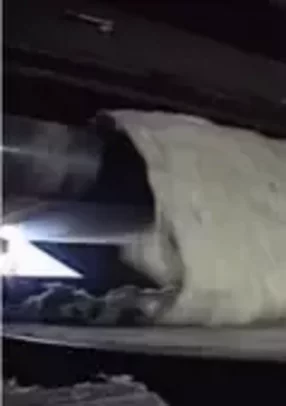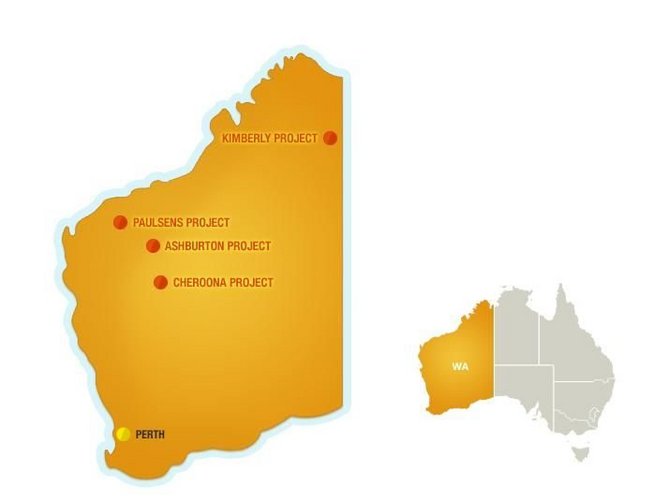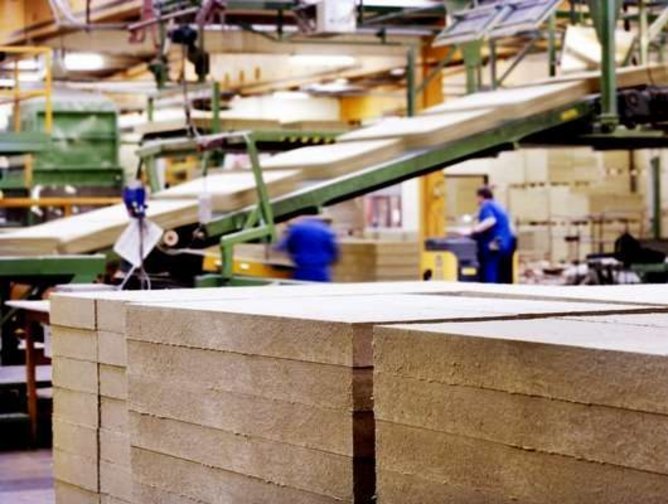
Ambitious ROCKWOOL Group expands into new territories
Industry-leading stone wool insulation provider ROCKWOOL is continuing its expansion into new markets by investing more than €120m into a new manufacturing plant in Mississippi, US.
Opening in May, the factory will be the Group’s largest line, and will supply the entire South East of the country with ROCKWOOL products, while adding to the company’s presence in North America, where it has already established two factories in Canada.
Today, the Danish-based ROCKWOOL Group makes 59 percent of sales in Western Europe, but sees strong growth in other global locations. Eastern Europe and Russia now comprise 24 percent of net sales on the back of strong growth of almost five percent in the region last year, while North America is growing even more rapidly.
Supply Chain Director Martin Berg said: “We have a strong growth rate and we are planning to grow even bigger into this market. With the investment for the plant, we are putting high expectations in the US.”
Differentiators
A range of quality insulation products with diverse applications has won this industry giant a reputation to match and allowed it to develop this global presence.
With a long history, stretching back to the establishment of its first factory in 1937, the ROCKWOOL Group achieved success in Demark before venturing abroad with its line-up.
Berg identified several key differentiators that elevate ROCKWOOL products above those of the competitors.
He said: “Our stone wool products are naturally fire resistant and non-combustible. They can therefore act as fire barriers and do not contribute to a fire. If such an incident occurs, other insulation products can add fuel to a fire if not properly protected.”
Noise reduction is another advantage of stone wool, a quality it shares with glass wool as compared to foamed plastics. The product is also 100 percent recyclable.
Berg said: “We can take our stone wool residue and put it back into furnaces and melt it into a new product. Every year, more than 500,000 tonnes of stone wool remnants and other residue materials are recycled.”
Supply chain excellence
As the ROCKWOOL Group has expanded, so too has the complexity of its supply chain, which has necessitated a solid strategy. As Supply Chain Director, Berg explained the Group’s approach to achieving excellence in this area, based around the “three C’s” of cost, capacity and customers.
He said: “We have a strong focus on how cost-efficient our supply chain is. And that is due to the fact that ROCKWOOL products are bulky and take up a lot of space when transporting. So our supply chain is twice as costly as the industry average for manufacturing supply chains in Europe.”
Because of this, the Group has made it a priority to further reduce the cost of goods sold with a logistical strategy to reduce production and transport expenses. Transportation especially offers even greater savings opportunities.
Berg said: “One of the areas we’ve been working on is automising the route planning and load optimisation of our trucks and there we have been partnering with a company called Ortec, using their LEO (Logistics Execution Optimiser) tool, and we have been implementing that with big success in Poland, as a first-runner, and that is running together with our SAP platform.
“That has yielded cost savings for a higher utilisation of our trucks, and secondly by reducing the number of kilometres driven. So here we’ve seen an immediate improvement in our transport costs and that is of course also lowering our CO2 emissions, so it is a very positive step.”
A thorough benchmarking of European international transports revealed potential for further improvement, and after inviting more than 180 companies to bid for lanes, savings of some five percent were achieved.
It is an international success that the Group intends to replicate at home in 2014, with the initiation of a pan-European strategic sourcing project addressing also domestic transports, while maintaining the long-term relationships with local partners.
Strategic network planning, with a view to adding capacity, the second C, is another focus area.
Berg said: “We put emphasis on strategic network planning; based on a five year sales projection we are putting a lot of effort into envisioning where to make new investments and build new factories for the future, asking where we need to add more capacity and how we utilise our existing manufacturing capacity in a more efficient way.
“We are also developing our tactical planning skills in the Group by implementing sales and operations planning (S&OP), which is a tactical focus on the five quarter horizon on balancing the demand from the market with our supply capacity.”
The third C revolves around improving the customer experience by reducing supply chain complexity and refining product assortment, as well as implementing metrics to judge the performance of the customer delivery service.
Berg said: “The supply chain function is our interface to our customers both when it comes to order entry and final delivery. To support our Group strategy of becoming even more customer focused, the supply chain area needs to be developed this way.”
Acquisitions
Along with manufacturing expansion, acquisitions such as ceiling firm Chicago Metallic Corporation (CMC) along with cladded facade specialist Heck Wall Systems and FAST Sp.z.o.o., have aided in the Group’s goal of moving from being solely an insulation provider to deliver complete solutions.
The first of course offers a greater foothold in the US, while the latter two afford an opportunity to strengthen further in the European market.
“We have been active in acquiring companies which can be used for integration of our products,” explained Berg. “We want to make joint solutions so we can offer a complete solution for both grids and for panels for ceilings and combining this we can have a much stronger market offering.
“CMC are very strong in the US, while our acoustic ceiling company, the ROCKFON Group, has a stronghold in Europe, and by combining this we think we can strengthen both companies.”
Along with German-based Heck, which is strongly into cladded facades, comes the launch of a new versatile product range called REDArt, as the ROCKWOOL Group aims to become a system holder within the exterior wall insulation systems business.
Further afield came the €77m acquisition in 2010 of rival CSR’s Asian operation, giving the company a strong position in the region, where it has increased its total factories there from one to five while bolstering employee numbers tenfold.
Berg said: “We have a very strong performance in Asia and we see big potential in Southeast Asia.”
Going forward, as well as enjoying an even stronger presence in emerging markets, the Group is perfectly poised to take advantage of European 2030 energy-efficiency drives, with long-term regulations on new builds coming into play as well as retrofitting of older buildings.
Berg feels the ROCKWOOL Group has an important and active role to play in carbon reduction. He said: “We have the right products to solve one of the biggest challenges, getting to grip with CO2 emissions. Energy savings are one of the most efficient ways of carbon mitigation and are often much cheaper and faster than looking into renewable energies.
“The easiest available source of energy reduction is the energy we waste every day because our homes, offices and industrial processes aren’t insulated properly. That is why I think the ROCKWOOL Group has a great future ahead of us.”


